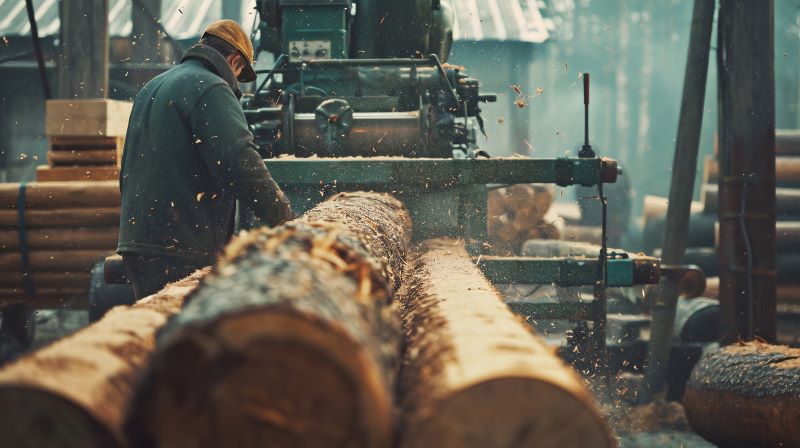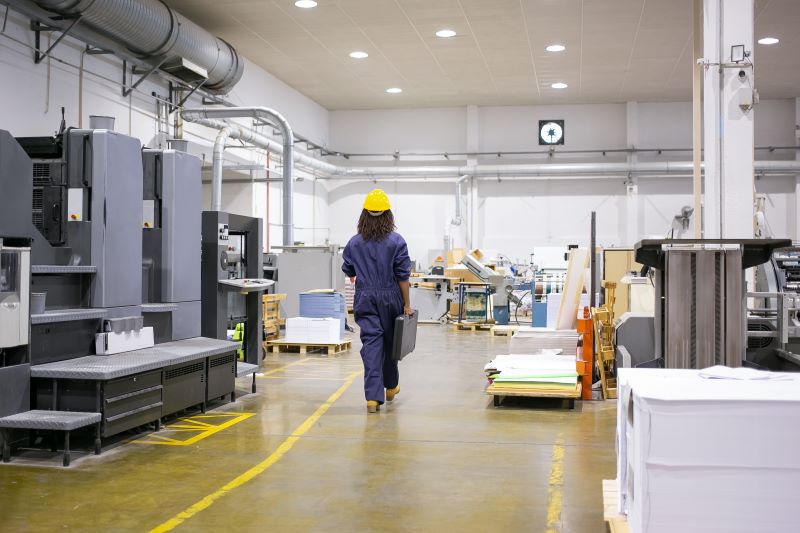Plastic is a material of superlatives. It’s the most useful material in the world, the most polluting, and one of the most difficult to dispose of. Without intervention, some plastics can remain in the environment relatively unaltered for more than 500 years.
Fortunately, a significant portion of the plastic we use makes its way to recycling centers. In these centers, a series of plastic grinder machines and heat chambers transform old plastics into a form that manufacturers can repurpose into new products. Recycling plastics reduces the stress plastic waste places on landfills and the natural environment.
The most fundamental step in any plastic recycling operation is crushing. Crushing involves heavy-duty machines with blades slowly munching through plastics of all shapes and sizes—somewhat similar to a great white shark chomping through a school of fish.
However, operating these plastic crusher machines comes with hazards. Ultimately, all the dangers associated with plastic grinder machines can be controlled and avoided. Let’s go through what might go wrong and what operators can do to ensure a smooth, incident-free operation.
What Can Go Wrong
Entanglement: Operators can get caught in moving parts, leading to severe injuries.
Cutting Injuries: Sharp blades can cause lacerations, especially to hands and fingers.
Hearing Damage: Prolonged exposure to loud machinery can lead to hearing loss or impairment.
Chemical Exposure: Certain plastics release harmful fumes when heated or crushed. Crushing also creates fine plastic particles that can become airborne and pose respiratory risks.
Of course, this isn’t an exhaustive list. Heavy equipment comes with a wide range of unlikely but potential hazards, such as smashed toes or strained backs from moving the machine or materials. However, by addressing these more common incidents, the likelihood of less common ones occurring is significantly reduced.
Mitigating Hazards
Prepare and Train Operators
This is the first and arguably most effective way to keep your operation incident-free. Ensure all operators receive thorough training on machinery and safety protocols. Adults can avoid burns in the kitchen by using hot pads and turning pot handles in. They know the risk is there and how to avoid it. Being aware of the dangers of these machines significantly reduces most risks. Once the initial training is complete, regularly hold refresher courses to keep safety top-of-mind.
Health and safety training can quickly become boring for employees, so be creative and make it engaging. Free food always helps.
Use Personal Protective Equipment (PPE):
Mandate the use of appropriate PPE, including gloves, goggles, ear protection, and steel-toed boots. PPE is essential in workplaces such as plastic recycling plants. Keep a store of extra equipment in case something breaks, or someone forgets.
Regular Maintenance and Inspection:
Just as a sharp kitchen knife is actually safer than a blunt one, a well-oiled plastic crusher is less likely to be involved in an incident than a rundown one. Establish a routine maintenance schedule to keep machines in optimal working condition. Daily inspections to check for wear and tear before operations begin are a smart practice.
Implement Safety Features:
Most plastic crusher machines come with appropriate safety signage and instructions. Depending on the plant setup, machines may require additional guards and shields to prevent accidental contact with moving parts. Make emergency stop buttons and triggers obvious and easy to reach.
Workplace Organization:
As in many industries, “slips, trips, and falls” are a common obstacle to incident-free operations. Tripping can be especially detrimental near an operating plastic crusher. To diminish the chance of this happening, keep a clean and organized work floor. Sweep frequently and ensure movable equipment has proper storage locations.
Emergency Procedures:
Develop clear emergency response plans for various incidents, including equipment failure or personal injury. In large buildings, it can be useful to conduct drills so staff know how to respond quickly and efficiently.
Prepare a Visitor Protocol:
Visitors to a recycling plant often want a tour of the facility. Prepare a protocol to keep these untrained personnel far from moving parts. Have spare high-visibility vests for touring groups to wear.
Monitoring and Reporting:
The worst way to maintain an incident-free operation is by not reporting close calls or minor injuries. This leads to the same—and sometimes more serious—incidents happening repeatedly. Create a culture that encourages the reporting of near misses and incidents to identify potential hazards.
Are Plastic Crushers Dangerous?
By identifying potential hazards and implementing effective mitigation strategies, plastic crushers are no more dangerous than driving your car to work or operating a lawn mower. Developing a strong awareness of the risks at the outset, combined with ongoing training, will lead to an incident-free environment. When operated this way, plastic crushing machines resemble mellow cows munching a field of grass rather than great white sharks. As plastic recycling plant employees work to protect the planet, it is the least we can do to protect them.




